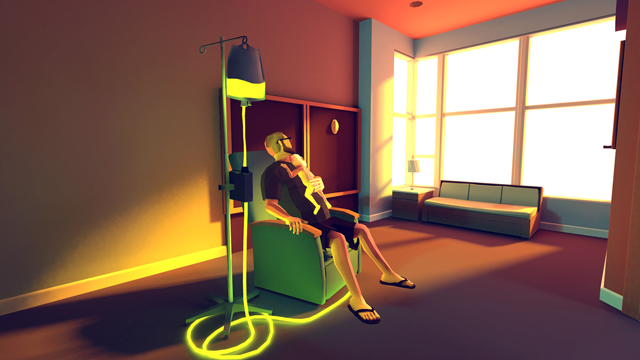A conversation with God.
Full disclosure: I backed the Kickstarter for That Dragon, Cancer at the game-plus-soundtrack level.
Biography and auto-biography are concepts prevalent in most art media, but when it comes to games, they exist mostly in smaller spaces, such as #altgames and other low-budget (not low-quality) pieces, not in big-budget games or even most popular indies. They are typically abstracted to be incorporated into a larger narrative, obfuscating the origins immensely. The only example of an auto-biographical game I can think of that resounded with a wide audience was Papo & Yo. But then, the story was not literal, not until its finale where the parallels between the symbols and their real-world analogs were explicitly drawn for the player.
In That Dragon, Cancer, Ryan Green also toys with abstraction, but he does so while playing out the literal narrative of his son, Joel, dying from cancer. Regardless of ever-present symbolism and fantasy, the focus is on this boy, this family, this illness, this tragedy. The player is controlling real people using their real names, and many of the conversations you hear not only actually happened but came from recordings the family made during Joel’s life. It is sobering in its execution, that is, as a game, and it will certainly resonate with players who look for humanity in code and processes.
In the opening, you embody a duck being thrown bread by Joel, sitting on the bank of a lake. And when you get close enough, you transition to one of his siblings, giving Joel bread to throw at the duck, whom you can still instruct to eat. Joel is not a playable character, which makes sense. Though I am positive there would be a respectful manner in which to implement that, it is clear that Green wants you to know Joel as others knew him, through interaction. The game is a memory the family holds, and having never been Joel, he is kept at arm’s length graphically even if not emotionally.
Shortly after this tranquil opening, during which you can hear the family laughing, you walk through the nearby woods to the next scene. However, through iconographic cursors, you’re prompted to “look” at areas, floating the player up into the treetops to overhear Ryan and Amy whisper about their concerns for the children. Next, after helping Joel swing and slide on a playground, you’ll listen to one of several voicemails left by Amy on Ryan’s phone, talking about Joel’s cancer. For every flight of fancy, there is something that will bring you back to earth, figuratively or literally.
And much of the game plays like this. Every scene is beautifully sculpted as if made by papier-mâché painted over with a broad brush by a young child. Faces lack distinguishing features beyond glasses and the hair that frames them. And text is both drawn over the scenes and embedded into the scenery, elevating beyond mere subtitles. The moving score complements each scene’s emotions dutifully, and to be honest, it’s nice to just relax and listen to it when the content gets too heavy to bear.
As players progress through various parts of the children’s hospital, the mature narrative is coupled with child’s play: a surgical glove balloon ride through cancer masses, a medical scanning facility built like a church, or a wagon race barreling through rotund farm animals while picking up cancer meds as power-ups. That Dragon, Cancer is also playful with scene transitions, changing everything out of view when you go to look at an object, comparable to some of the tricks Antichamber would play on you. There are times, though, when it’s not clear what you need to do to transition to the next scene or things would hang a bit, which mars the experience.
As much as I enjoyed the diversions, they were always bittersweet. They are always about the cancer defeating Joel at the time. Yet, the most engaging parts of the plot for me were the parts that dealt with faith. God is very much a character in this game whether or not they manifest physically. The arguments and discussions you’ll overhear are about prayer, hope, and miracles, but they are also about abandonment and despair. Amy is so compelling because as she hears the word death, she chooses the risk of hope even as Ryan metaphorically drowns in sorrow. The strength she embodies as she is brought to the brink of furor is inspiring and heartbreaking.
This is ultimately a Christian game, but it presents God and Christianity rightfully as a conversation. I’d contrast it with Bioshock Infinite’s ham-fisted diatribe of “Religion is bad, mmm-kay?” The nuance missing in many games’ depictions of religions exists here. (And it is worth reiterating that I speak as a Jewish-raised atheist.) Instead of juvenile surface-level drivel strutting its stuff for the pedantic atheist brigade you’d find on the web, we are given characters, real existence notwithstanding, who lament that their child might not be as worthy as Lazarus was to Jesus and who ask God when the big miracle will come given the smaller ones that preceded it. This family and Joel are caught between two powerful forces, cancer and God, and one is clearly winning. Yet they remain faithful and in awe of the other still.
That Dragon, Cancer is a game that you will lose. You will not beat it. You don’t win. Even This War of Mine has “winning” conditions. It is so fitting that this is a game, not a movie. From the jilting scene transitions to selective interactions, the dioramic games within the game to the increased level of abstraction and perspective changes, the mode of storytelling works. But it mostly excels at being a lesson that as much as you can "game-ify" elements of life, you will be confronted with perma-death—real death.
Continue?
-
Nice graphics and score
-
Compelling biography of a family going through a horrible time
-
Excellent representation of religion as a conversation
-
A game you can’t win
-
Occasional bugs and confusing interactions
That Dragon, Cancer
-
That Dragon, Cancer #1
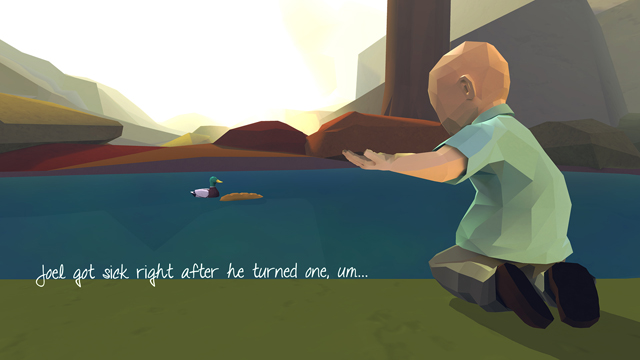
-
That Dragon, Cancer #2
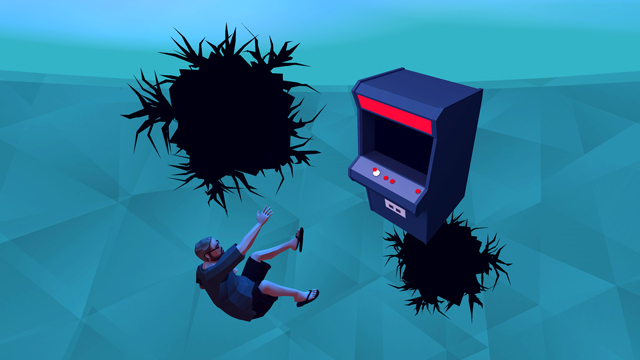
-
That Dragon, Cancer #3
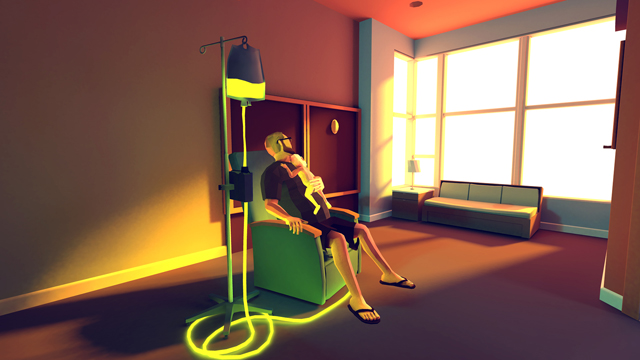
-
That Dragon, Cancer #4
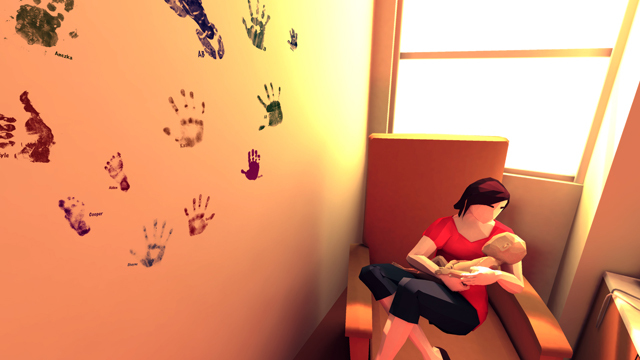
-
That Dragon, Cancer #5
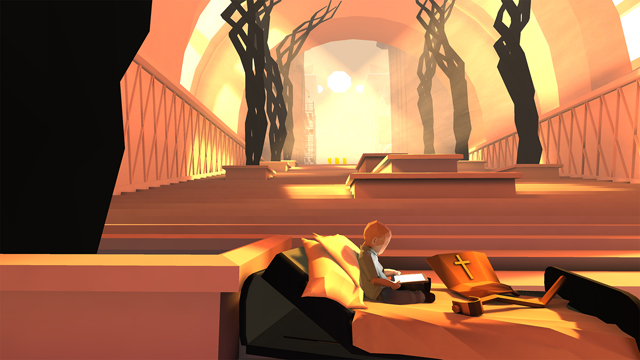
-
That Dragon, Cancer #6
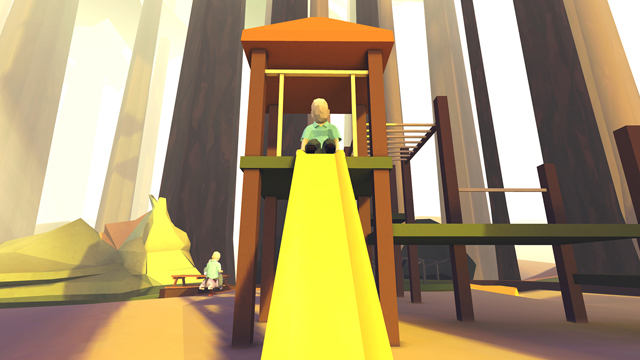
-
That Dragon, Cancer #7
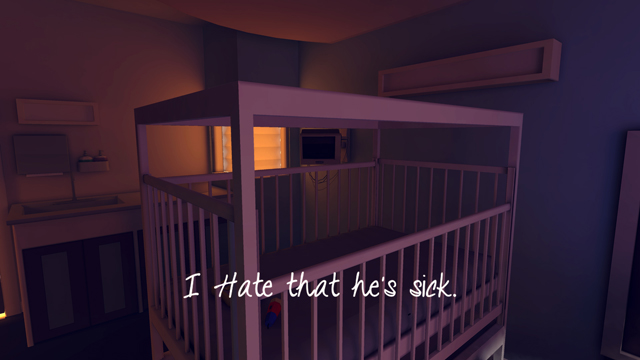
-
That Dragon, Cancer #8
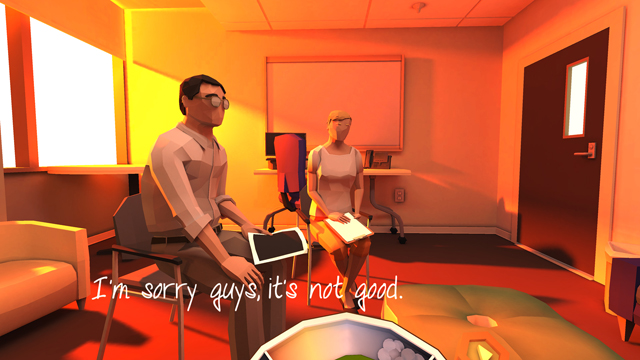
-
That Dragon, Cancer #9
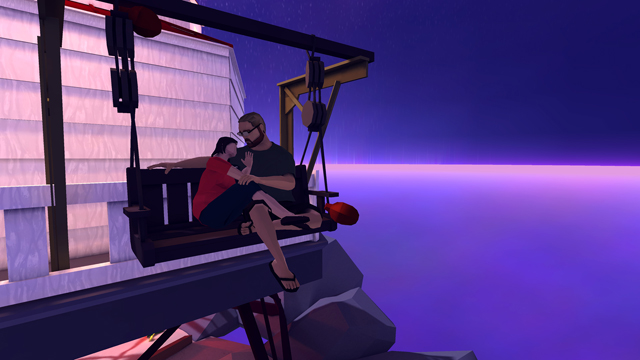
-
That Dragon, Cancer #10
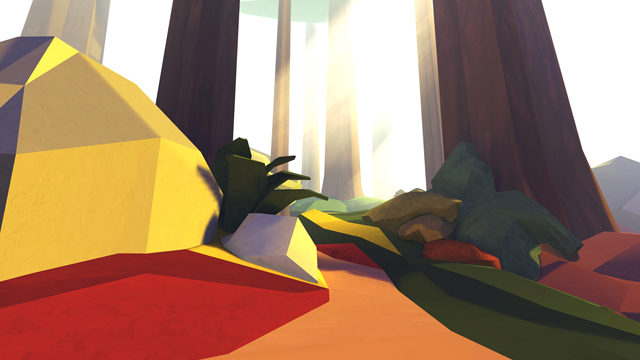
-
That Dragon, Cancer #11
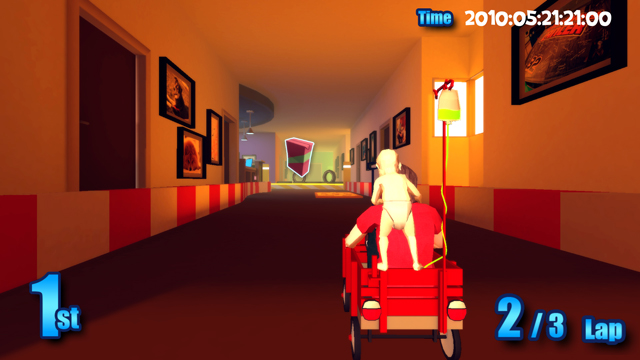
-
That Dragon, Cancer #12

